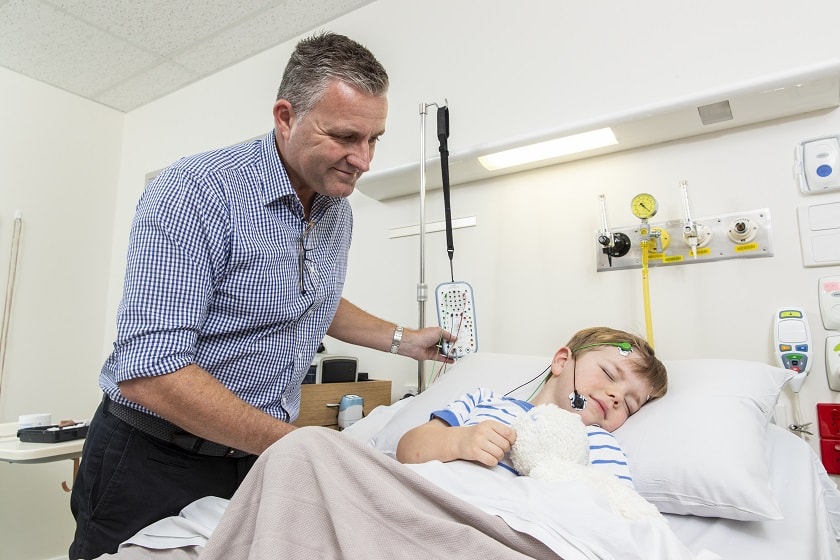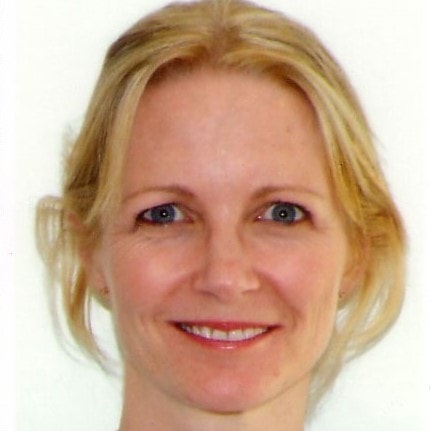About sleep disorders
Paediatric Sleep Medicine Specialist Dr Annie O’Donnell says children’s sleep disorders not only impact energy level, school performance, memory, mood, growth and behaviour of the child but also affect the household’s sleep quality and overall functioning.“Signs of a sleep disorder can include difficulty settling into sleep at a reasonable bedtime, waking often during the night, being very restless during sleep, being tired upon waking in the morning and either snoring, gasping or having difficulty breathing during sleep.” she said.
Diagnosing sleep disorders through sleep studies
Fortunately, sleep disorders in children are often easily treated or managed. A sleep study done in a dedicated sleep unit such as St John of God in Murdoch will be able to determine whether a sleep disorder is present.Clinical Operations Manager from Murdoch Sleep Unit Simon Kemp said a sleep study (polysomnogram) is an overnight test that continuously monitors your child’s sleep and breathing using many small sensors that are attached to your child.
“Most people worry that their night’s sleep won’t be the same as at home, but a sleep unit can usually gather enough sleep data to make a diagnosis,” he said.
“Kids are able to bring along any personal items from home such as toys, pillows or comfort items and one adult must stay with the child for the duration of the evening.
“After settling into a private room, a sleep technician attaches small sensors to the skin of the scalp, face, chest, finger and legs, enabling precise monitoring of your child’s sleep.
“These are attached to state of the art equipment that monitors a range of functions during sleep including oxygen levels, breathing, brainwave activity, eye and leg movements and heart rate.
"A continuous recording of your child’s sleep is created and provides a precise diagnosis of sleep disorders.”
Results of the polysomnogram are then sent to your referring doctor and a treatment plan is put in place.
Dr Annie O’Donnell's top tips for kids sleep
- Keep regular times for sleeping and waking, even on weekends, to regulate the body’s clock.
- Create a bedtime routine that is relaxing and calm, avoiding anything stressful or anxiety inducing.
- Make the room dark, cool and quiet. If there are issues with noise out of your control, such as traffic, try white noise such as a fan or calming music.
- Invest in some supportive and comfortable bedding, ensuring everything is always clean and fresh.
- Limit daytime naps for older children
- Get into the sunlight in the morning and avoid bright lights as you wind down at night.
- No devices within one hour of bedtime. Blue light can trick kids body clocks and make going to sleep harder.
- Ensure kids are getting plenty of physical activity, particularly early in the day.
- Avoid stimulants such as sugar before bedtime as quality of sleep may be affected.
- Don’t let kids go to bed too full or too hungry. Keep mealtimes at least two hours before bed
About the St John of God Murdoch Hospital Sleep Unit
The Murdoch Sleep Unit is the only private paediatric sleep service south of the river.
Some common issues diagnosed at the Sleep Unit which affect children’s sleep include:
- respiratory problems, including snoring and obstructive sleep apnea
- restless sleep patterns
- parasomnias including sleepwalking / sleeptalking / night terrors
- insomnia
- restless legs syndrome / periodic limb movement disorder


